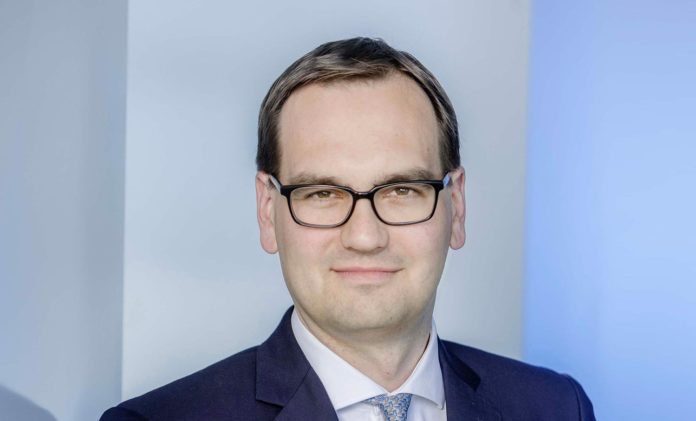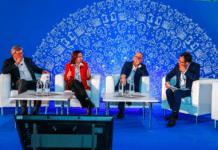Chief Operating Officer Hendrik Otto assesses the opportunities and challenges facing WEPA production sites in Germany, France, Italy, Poland, the UK and the Netherlands as Covid-19’s varying impact continues.
The pandemic had significant impact across the entire tissue paper industry. Due to increased sales in the retail sector, orders increased significantly in March and April 2020 across Europe, but especially in Germany. Together with our customers, we did everything possible to ensure security of supply. We adapted our production to the demand as far as possible. To ensure a maximum supply of our products, we concentrated on the production of standard articles. In consultation with our customers, for example, we dispensed with individual embossing.
Temporarily, the demand for toilet paper in 2020 was nearly twice as high as usual but that has since levelled off. By the end of 2020 we did not see any additional consumption in toilet paper.
It is difficult to predict the buying behaviour for hygiene paper products in the current situation. After the panic-buying we saw in March and April 2020, consumption behaviour returned to normal in most countries. Nevertheless, at the end of September we again saw the first supermarkets in the UK starting to ration certain products such as toilet paper. We can only appeal to the people: having a standard stock of products of daily need at home is perfectly sufficient. There is no need for hoarding. What we notice is that due to the fact that many people spend more time at home, there is an increased demand for facial boxes and kitchen towels.
As a result of the Corona measures, more toilet paper has been used at-home instead of in businesses or hotels. However, a product where we expect an increased demand in the long run is paper towels. During the pandemic, people’s hygiene awareness has increased: especially in public restrooms people attach greater importance to hand cleaning with paper towels, which is recommended for better hygiene.
Overall, we will have to wait and see how the changed consumer behaviour and the “new normal” will affect the consumption of tissue products in the long-term. But for sure the awareness for sustainable products will continue to rise.
The increased hygiene awareness will serve as a positive driving force for AfH market development. However, it will suffer from a lower level of activities in the classical AfH environment: the public has decreased their travel activities by more than 50%, leading to less consumption in airports or hotels.
Furthermore, a lot of companies have had positive experiences with home office solutions which, at least partly, will continue to exist in the future and will therefore lead to lower consumption in the office environment. In addition, the gastronomy and catering channel suffers significantly amongst others from closures or hygiene measures which do not allow the businesses to operate at full capacities.
Overall, we expect the consequences resulting from lower AfH activities to prevail in the short-term, while in the long run increased hygiene awareness and paper consumption will bring the market back into a positive growth dynamic.
We are also seeing an increase in private label products and a move away from branded tissue products. We have already seen this trend over the past several years all over Europe. In Western Europe, the private label share lies over 66% and in Germany it’s over 85%. Retailers see better chances to distinguish themselves in the market through their own labels as consumers are looking for more than just a brand. The products must tell a credible story and be sustainable.
The growing online market will be no exception in the tissue products sector. However, with the right concepts (offline and online mix of the retailer) and products, the stationary trade should continue to have an advantage with these voluminous and rather low-priced products for quite a while.
With regards to our professional business, many wholesalers offer our products already in their online shops and we also experiment with different concepts here. E-commerce is also becoming more and more important in the AfH market.
For WEPA in 2021 and 2022, we are consistently investing to maintain our state-of-the-art production sites in Germany, France, Italy, Poland, the UK and the Netherlands. We have just announced further extensive investments in infrastructure and production at our UK plant in Bridgend. The main focus of the investment is the construction of a new paper machine as we see growth potential for us in the UK consumer market.
In addition, we have just commissioned new machinery for our plant in Poland that produces primarily for the AfH sector, among others a new paper machine which will be put in operation this year. It replaces the former crepe line and is an investment in greater quality. Even though the current situation in the AfH market is challenging, we see potential for growth in this market in the coming years. Furthermore, we are convinced that rising living standards, urbanisation and especially the growing hygiene awareness will increase the demand for tissue products in Europe in general within the next few years. Especially in Eastern Europe, we see great potential.
In our local markets, as with others, the Covid-19 situation is very volatile. We all need to remain vigilant. That is why we keep our hygiene standards and occupational safety measures at the highest level.
Hygiene papers are products of daily need and we see that people’s hygiene awareness has grown during the past months. We expect it to rise even further. This offers new opportunities to us and we are continuously working on innovative hygiene solutions.
Sustainability – a topic which has always been very important to us – is also becoming an increasingly important aspect in society and for consumers. We keep working on innovative concepts in this field. Developing new sustainable products and concepts continues to be one of our focus areas. For example, our Hybrid Fair Fibre concept is the intelligent combination of recycled fibres and cellulose that meet consumer demands in terms of ecology and comfort. It has a proportion of 30% recycled fibres and a 20% improved environmental footprint.
On the other hand, we also face challenges – mainly, the ongoing development of the pandemic. Especially the situation in the AfH sector which will remain challenging for the coming months of 2021.
Besides that, the issues of energy supply and raw material availability and the corresponding price development are imponderable. As well as the upcoming lack of qualified personnel in Germany, especially in the logistics sector.
However, we accept the challenges, and we are confident to successfully shape our future as an agile and sustainable family-owned company.


































